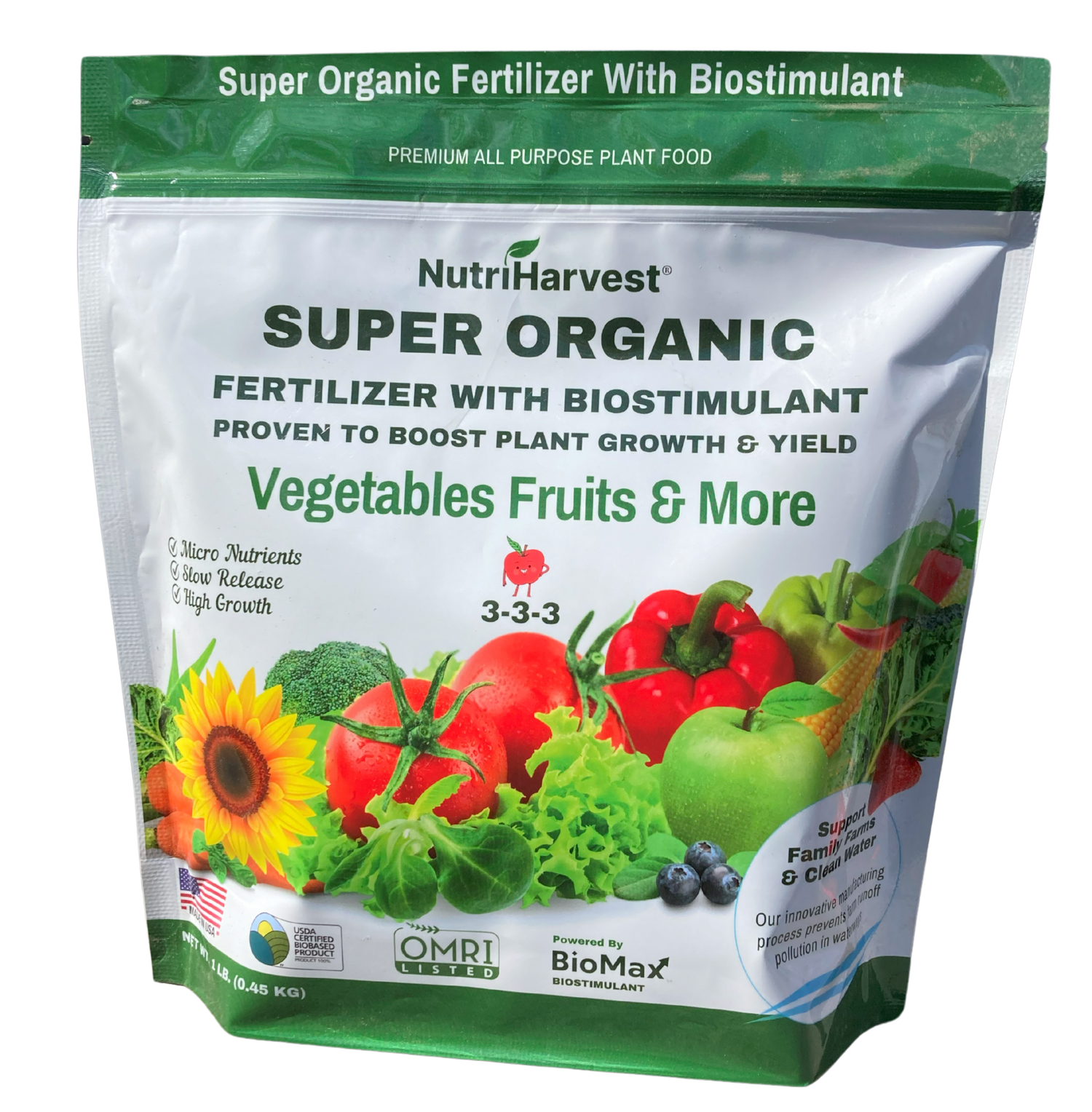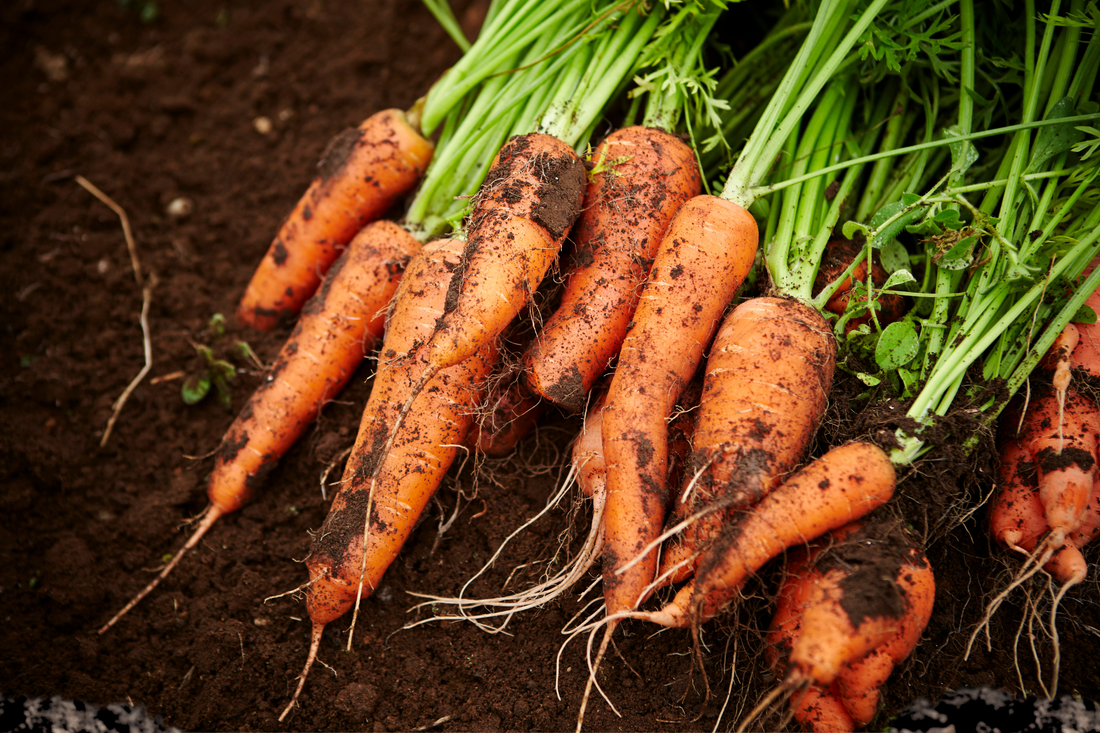Embark on the delightful carrots gardening adventure with organic fertilizers that's not only rewarding but also enriches the environment! Growing carrots is an exciting journey, filled with moments of anticipation as you watch these vibrant vegetables burst through the soil. This ultimate guide is your one-stop resource for diving into the joys of cultivating carrots in your garden, understanding carrots' fertilizer requirements, organic fertilizers recommendations, the ideal fertilizer schedule, the growing season, and the fascinating growth time and stages of carrots with a focus on organic practices that benefit both your health and the environment. Let’s embark on a delightful journey to understand everything from the magic of carrots to the wonders of organic fertilization, ensuring your gardening adventure is as rewarding as it is environmentally friendly.
Discover the Wonders of Carrots
Carrots are not just any vegetable; they are a powerhouse of nutrition, offering an array of health benefits that can enhance your vision, boost your immune system, and even improve your skin health. The key to unlocking the full potential of these benefits lies in how carrots are grown, making organic fertilizers an essential part of their cultivation.
Understanding Carrots' Fertilizer Requirements
Carrots have specific nutritional needs that, when met, result in a bountiful harvest of sweet, crunchy vegetables. They primarily require a balanced mix of nitrogen, phosphorus, and potassium (N-P-K), with an emphasis on phosphorus for strong root development. However, too much nitrogen can lead to excessive foliage with poor root growth. Therefore, understanding and meeting these requirements with precision is key to successful carrot cultivation.

Organic Fertilizer Recommendations for Carrots
Regular Organic Fertilizers
To support the healthy growth of carrots, organic fertilizers are your best bet. They release nutrients slowly, improve soil structure, and enhance soil life. Here are some top organic fertilizer recommendations for carrots:
- Composted Manure: Rich in nutrients and organic matter, composted manure is an excellent all-around fertilizer. It should be well-composted to avoid burning the plants and outbreak of pathogens like E coli. E coli could cause food illness.
- Bone Meal: An excellent source of phosphorus, bone meal promotes robust root development in carrots. It's ideal for mixing into the soil before planting.
- Fish Emulsion: This liquid fertilizer is high in nitrogen but balanced out with phosphorus and potassium, making it a great option for leafy growth and overall health.
- Wood Ash: Rich in potassium, wood ash can be sprinkled lightly over the garden bed to promote root growth and disease resistance in carrots.
- Dual Action Dry Organic Fertilizers: There are a new generation of balanced, non-burning, and nutrient-rich organic fertilizers that go a step further in not only producing great produce but provide clean water benefits for the alchemy of agriculture with water. When selecting organic fertilizers for your carrots and other plants, opt for products that provide a balanced blend of macro and micro nutrients to meet the specific needs of vegetables like carrots, and look for labels indicating the NPK ratio, as well as the presence of additional micronutrients such as NutriHarvest® Organic Fertilizers.
By nourishing your carrots with a well-rounded organic fertilizer, you'll promote healthy growth, robust yields, and deliciously nutritious harvests!

Carrots Fertilizer Schedule: Timing is Everything
A well-timed fertilizer schedule is crucial for maximizing carrot yield and quality. Here’s a simple yet effective schedule:
- Before Planting: Work compost or a balanced organic fertilizer into the soil about two weeks before sowing seeds to prepare the bed.
- During Growth: Apply a half-strength liquid organic fertilizer, such as fish emulsion, 3-4 weeks after seedlings emerge to support growth.
- Mid-Season Boost: Depending on the growth and the soil's condition, another application may be beneficial halfway through the growing season.
Carrots Growing Season: When to Plant for Perfect Harvest
Carrots are cool-season crops that thrive in moderate temperatures. The ideal time to plant carrots is either in early spring, a few weeks before the last frost, or in late summer for a fall harvest. They require a growing season with temperatures ranging from 60°F to 75°F (15°C to 24°C), making them versatile for various climates.
Carrots Growth Time and Stages: From Seed to Harvest
The journey from seed to harvest is a fascinating process, typically taking between 50 to 80 days, depending on the variety. Here’s a brief overview of the growth stages:
- Germination (Day 1-3 weeks): Seeds sprout and begin to establish a small root system.
- Leaf Development (Weeks 2-4): True leaves start to form, indicating healthy root development.
- Root Bulking (Weeks 5-10): This is where the magic happens! The carrot roots begin to expand and develop their characteristic color.
- Maturation (Weeks 10-12): Carrots reach full size and are ready for harvesting.
Final Thoughts
By understanding and implementing these organic practices, from selecting the right fertilizer to adhering to a nurturing schedule, you can enjoy a thriving carrot garden. Integrating nutrient rich organic fertilizers like NutriHarvest® Organic Fertilizers into our gardening practices represents a tangible action towards sustainable living. It works for all growers whether you want to enjoy your beautiful backyard garden or cultivating a sustainable greenhouse business growing plants or have a thriving farm tending corn and other crops. This approach not only benefits the immediate health of our gardens and farms but also contributes to a legacy of environmental care Remember, growing carrots is not just about the harvest; it's about participating in a sustainable living cycle that enriches our plates and our planet. Happy gardening!



